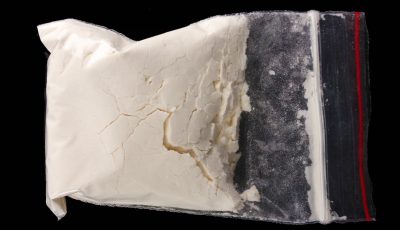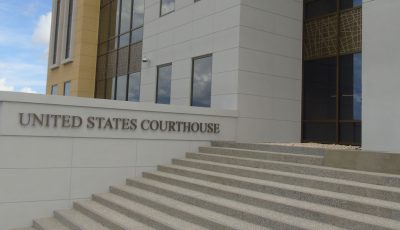‘Ex-firefighter also wrote letter to local court judge in drug case’
Richard Sullivan Benavente, a former firefighter who wrote two letters to a federal judge in connection with the Raymond B. Roberto case, also wrote an untruthful letter to a local court judge in an illegal drugs case, the federal court found out.
U.S. District Court for the NMI Chief Judge Ramona V. Manglona brought up Benavente’s letters in her order on Thursday that granted the U.S. government’s motion in limine, and denied defendant’s motion to disqualify three prosecutors from the case.
Motion in limine refers to a request made before the start of a trial requesting that the judge rule that certain evidence may, or may not, be introduced to the jury in a trial.
Manglona disclosed that, in early April 2014, Benavente wrote a letter to her, stating that he was the owner of a cell phone with the number 789-3443.
That number was significant, Manglona said, because the U.S. government alleged that the phone had belonged to Roberto, and that text messages associated with that number were used to arrange Roberto’s sexual encounters with female minors.
Roberto, 41, a former acting director of the Division of Fish and Wildlife, was acquitted by a jury in September last year of charges that he enticed three minors to engage in prostitution and tampered a witness while he was in jail.
Manglona said that, on April 25, 2014, two FBI agents in the presence of three prosecutors interviewed Benavente about the number 789-3443. Attorney Mark Hanson represented Benavente in that meeting.
At first, consistent with his letter to Manglona, Benavente stated that he used the 789-3443 number to contact the minors until his arrest, and had also allowed “Ray King” to use the number for the same purpose.
Benavente told the FBI that the 789-3443 SIM card should be in the possession of the local police after his initial arrest.
However, Manglona said, Benavente changed his tune after being warned of possible criminal charges for lying and after speaking privately with Hanson.
Benavente “confessed to lying about the entire claim of using the 789-3443 cell phone to communicate with the minors.”
According to an FBI report, Benavente stated that he was approached by Roberto in prison and asked to lie on Roberto’s behalf.
Benavente lied about the SIM card being in the custody of the local police because the office apparently had a history of misplacing evidence. He accused “Ray King” of using 789-3443 because some of the messages between that number and the minors referred to a “Ray.”
Shortly after the April 25, 2014, meeting, Benavente changed his story yet again, Manglona said.
She said Benavente wrote another letter to her in May 2014, again stating that he was the owner of the 789-3443 number and that he only changed his story because he felt pressured by the U.S. government and his lawyer, Hanson.
Benavente repeated that story during his testimony on Sept. 9, 2014.
Manglona said this was not the first time that Benavente had written a letter to a judge about another defendant’s culpability.
In March 2014, Benavente allegedly told the FBI that a few years earlier, he had written a letter to a judge in an attempt to exonerate a defendant charged in CNMI courts with selling drugs.
Manglona said Benavente knew his letter was a lie because he had allegedly been used as a confidential informant during three “buy-bust” operations against the defendant, but agreed to write the letter and deliver it to the defendant’s lawyer in exchange for drugs.
Manglona said that when Benavente failed to receive the quantities of drugs promised, he recanted.
In his motion in limine, Benavente asked the court to preclude the U.S. government from presenting any evidence of his having written an exculpatory letter on behalf of a defendant facing trial in local court in exchange for “ice,” then retracting that letter when he was provided less “ice” than promised.
In denying Benavente’s motion in limine, Manglona said the evidence is admissible for a non-character purpose, is relevant to the crime charged, and may be properly admitted with a limiting instruction.
Manglona said the evidence Benavente seeks to suppress also indicates his willingness to falsely exculpate other criminal defendants by writing a letter to a judge and having it delivered through the defendant’s attorney.
Although the evidence could suggest the prohibited inference that Benavente has a character of dishonesty and acted in accordance with that character when he allegedly perjured himself at the Roberto trial, it also shows intent, plan, and modus operandi for obstructing justice, Manglona said.
“In other words, the evidence supports the motion that this particular pattern of behavior is how Benavente operates,” she said.
Manglona said Benavente’s past willingness to falsely exculpate a defendant closely matches what he is accused of doing in this case.
Manglona said Benavente alleges that he wrote the first exculpatory letter only “several years ago,” and the FBI report and his testimony at the Roberto trial—where he admitted to writing the letter—provide sufficient evidence that the past act really happened.
Additionally, Manglona said, the alleged falseness of both exculpatory letters ties the evidence to this case.
“The fact that in one instance Benavente was motivated to change his story by his drug habit, and in the other by pressure from his attorney, is not consequential. In both circumstances, according to Benavente, his will was overborne. It is another similarity,” Manglona said.
She said the evidence is extremely relevant to what Benavente is accused of—obstructing justice. She said its probative value exceeds the danger of unfair prejudice.
Manglona said the court can instruct the jury on the proper scope of its consideration if the evidence is admitted.
Manglona also denied Benavente’s motion to disqualify assistant U.S. attorneys Garth Backe and Ross Naughton from prosecuting this case.
Benavente argued that, as witnesses to the April 25, 2014, interview, Backe and Naughton should be disqualified because of the advocate-witness rule and the rule against vouching.
The advocate-witness rule prevents an attorney from appearing as a witness and an advocate in the same litigation.
Manglona said the advocate-witness rule does not prervent Backe and Naughton from prosecuting this case because neither of them could present evidence not already available to Benavente through FBI agents.
Benavente, who already pleaded guilty to a count of exploitation of a child, has asked the court to disqualify the two prosecutors from handling his separate perjury case.
Benavente, through counsel Dotts, said Backe and Naughton are percipient witnesses to a critical event in the case.
Dotts said all three could be called to testify and as such, none of the three should prosecute this case.
Last February, Benavente pleaded guilty to a count of sexual exploitation of a child. It is relate to the June 23, 2013, incident in which he “induced” the female minor to have sex while being videotaped on a cell phone.
Benavente is still under the custody.
Last September, Benavente and Randy A. Igisomar, were indicted in federal court for allegedly lying during Raymond Roberto’s trial.
The indictment charged Benavente with three counts of perjury, and one count of obstruction of justice. It also includes a criminal forfeiture allegation. He pleaded not guilty.



























